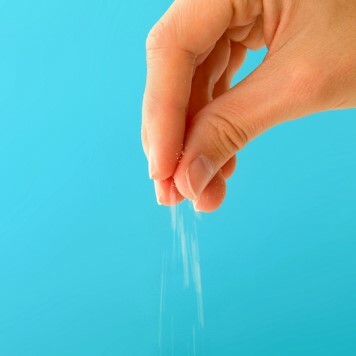This topic has been the subject of much debate in the media recently after chemist Michelle Francl, authored a book, called Steeped - The Chemistry of Tea (Reference 1). In it, she recommends adding a pinch of salt to tea.
While NZ tea drinkers are used to the more common additives of milk and sugar, the idea of adding salt is new for some.
As it turns out, this practice of adding salt has been present, and embraced by tea drinkers in some cultures for centuries.
Early reference to this practice was recorded well over 1,000 years ago in 760 CE by Lu Yu, a Chinese tea master. He was considered the “Sage of Tea” for his contribution to Chinese tea culture and authored a book called – The Classic. This book is considered the earliest definitive book on tea and tea culture and in it he recommends adding a dash of salt to the water before infusing the tea leaves.
Reasons why you may consider adding a pinch of salt to your tea include:
- Balancing Bitterness: Salt has been shown to reduce the perception of bitterness in many foods. It can help neutralize any bitter notes in your brewed tea, especially in an astringent black tea or an over-brewed tea. It can smooth out the flavour, making it more palatable.
- Enhancing Sweetness: Salt can amplify the perception of sweetness in tea, particularly in teas with naturally sweet undertones like some green teas.
- Accentuating Flavour Complexity: In some cases, adding salt can accentuate the nuances and complexities of the tea's flavour profile, allowing you to better appreciate its depth and character.
- Hydration: Salt is a natural electrolyte. Adding a little salt to your tea can help replenish electrolytes lost through sweating or dehydration.
Adding salt to tea is a practice found in some cultures, particularly in parts of Asia and the Middle East. In some cases, it is added for mineral benefits or in other cases the flavour enhancement that it can offer. Styles of tea and regions of the world where you may find salt used in tea include:
- Yak Butter Tea: In Tibet, salty butter tea is a traditional beverage made by churning tea with yak butter, salt, and sometimes milk. Salt is added to balance the richness of the butter and to combat the cold climate, as it helps replenish lost electrolytes.
- Mongolian Milk Tea: This is a strong, milky tea made with pressed black or green tea, milk, water, salt and, sometimes, fried millet. The salt is included as a mineral supplement for the body.
- Moroccan Mint Tea: Some Moroccan tea drinkers add a pinch of salt to their mint tea. This addition can enhance the flavour and smoothness of the tea, particularly when served with sweet pastries or savoury snacks.
- Karak Chai: A popular spiced tea made with black tea, milk, sugar, and spices like cardamom and ginger. Sometimes a pinch of salt is added to balance the sweetness and enhance the flavour profile.
Our observations:
If you start with quality loose-leaf tea, brewed using the recommended guidelines then the resulting cup of tea should be bursting with flavour and goodness – it should not require any masking of bitterness by adding salt. Read our five steps to brew the perfect cup of tea guidelines.
If something has gone awry during the brewing process then a pinch of salt may be a helpful addition.
Here are some situations where you may wish to add salt to your tea:
- If you find the tea you are drinking is a highly astringent black tea, that you are finding unpalatable then try a pinch of salt.
- If you get distracted and your tea cools off, leaving you with a bitter brew then adding a pinch of salt may smooth this out.
- If you have brewed your tea with water that is too hot for the leaf and you have drawn out any bitterness then a pinch of salt may be helpful.
- Iced Tea Bitterness – if you find your iced tea base too bitter then a pinch of salt added can smooth this – this may occur with green tea.
When to add salt:
Lu Yu – added it to the water before pouring across the leaves. In the event you wish to add once it is steeped then make sure the water is hot enough to dissolve the salt and stir it well to incorporate the flavour.
Proceed with caution – Start with a pinch of salt:
It's important to use salt sparingly, as too much can overpower the tea's natural flavours and lead to an overly salty brew. Start with a very small amount, a pinch, and then adjust to taste and find the balance that suits your taste preferences. The salt taste should go unnoticed when drinking the tea.
We encourage you to experiment and have fun.
Reference:
1. Steeped The Chemistry of Tea, By Michelle Francl, Published by: Royal Society of Chemistry
Notes:
(a) If you want to read more on the role salt plays in taste and flavour in food then here is a handy link to the US government National Library of Medicine – Taste and Flavour Roles of Sodium in Foods.
(b) A pinch is the amount of salt you can hold between index finger and thumb.
Posted: Wednesday 8 May 2024







